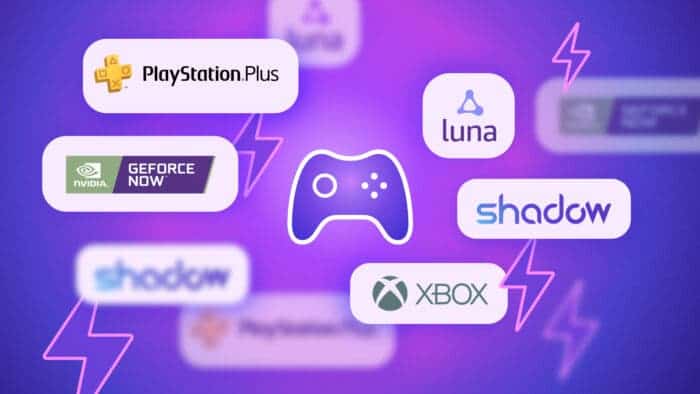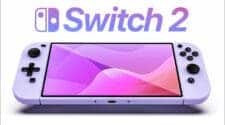What exactly is cloud gaming, and which among Nvidia GeForce Now, Microsoft’s Xbox Cloud Gaming (Game Pass), Amazon Luna, and PlayStation Plus stands out as the top service? Discover the answer in our extensive comparison!
Over the past few years, cloud gaming has consistently made headlines. This innovative approach to gaming has the potential to reshape the gaming industry in the near future. With greater reliability and stability compared to previous years, this technology could emerge as a genuine alternative to traditional gaming.
So, what does cloud gaming entail? How does it function? What are the various services available, and what sets them apart? These are the questions we’ll delve into in this comprehensive article.
How does cloud gaming work?
In a nutshell, cloud gaming enables you to play video games on various devices without those devices handling the graphics processing. The computational power is shifted to remotely hosted servers, which execute the games and then transmit the visuals to the players. To access such a service, all you typically need is an internet connection and a screen to play on, whether it’s a computer, a set-top box, a smart TV, a smartphone, or a tablet.
Following this concept, it becomes possible to play even the most demanding and sophisticated games on low-powered or affordable devices, as the server handles all the heavy lifting. This transformation in gaming is reminiscent of what’s occurred in the world of video streaming services like Netflix or music platforms like Spotify.
However, the technology involved in cloud gaming is a bit more intricate. This is because it’s crucial to minimize the delay (latency) between the server and the player as much as possible. Games are inherently interactive, unlike other media, and demand exceptionally quick responses since data cannot be preloaded. As a result, it’s advisable to use a wired connection for the best quality, or at the very least, a 5 GHz router, Wi-Fi 6, or 6E if available.
Cloud Gaming Services
Xbox Cloud Gaming (within Game Pass)
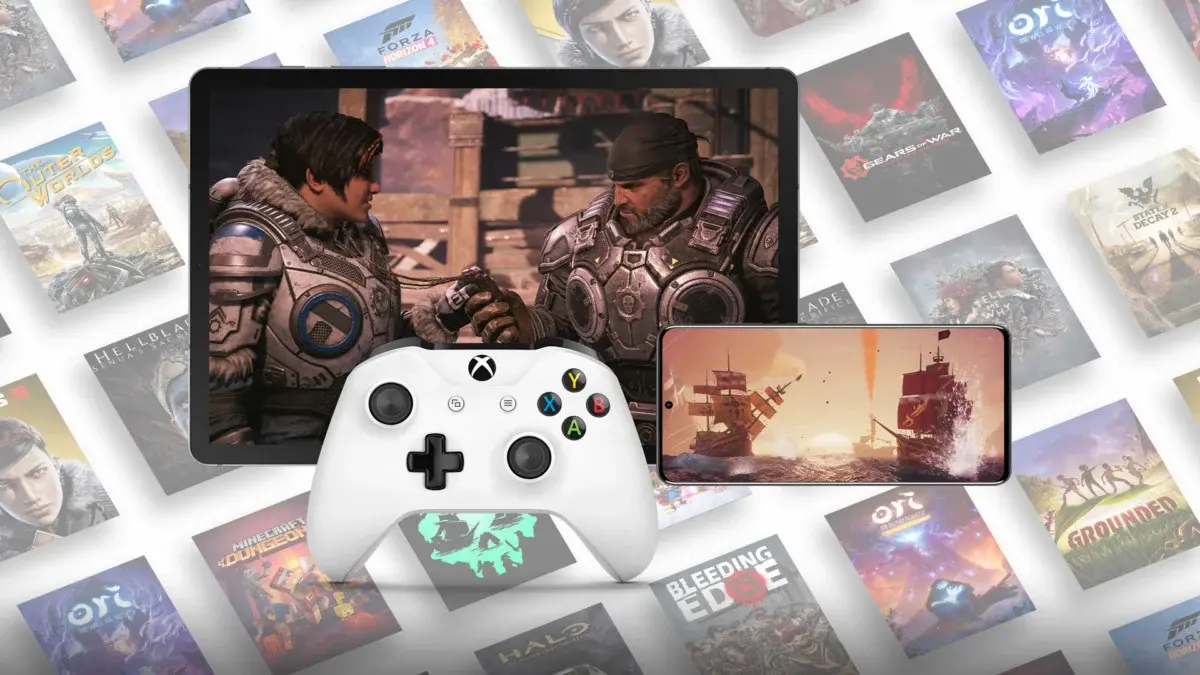
Microsoft introduced its cloud gaming service, Xbox Cloud Gaming, as part of the Xbox Game Pass Ultimate package in September 2020. This service lets you stream a curated selection of Xbox games. You can even test it out for free, making it the perfect solution for enjoying Fortnite on your iPhone.
Initially limited to Android devices, Game Pass expanded to most platforms by the summer of 2021. You can access it through an Xbox, Android devices, and any device with a web browser, including Windows and Mac PCs and iOS devices. On Windows, it’s best to utilize the Xbox app, with the only requirement being an Xbox controller.
Xbox Cloud Gaming is gradually making its way to televisions, beginning with Samsung TVs. To access it, you’ll need a compatible controller. Samsung has also confirmed that its Smart Monitor range supports this feature. Alternatively, you can access Game Pass from any TV with a web browser integrated into the TV’s operating system, although the experience might not be optimal.
Subscription Options:
- Xbox Game Pass Core: $6.99 per month
- Xbox Game Pass Console: $10.99 per month
- Xbox Game Pass PC: $9.99 per month
- Xbox Game Pass Ultimate: $14.99 per month
The Xbox Game Pass Ultimate subscription is the only one that provides access to cloud gaming. It offers an extensive game library, encompassing popular Microsoft franchises like Gears of War, Forza, Halo, Flight Simulator, games from Microsoft-owned studios like Bethesda (Doom, Wolfenstein, The Elder Scrolls Skyrim, etc.), titles from third-party and independent studios, and contributions from major third-party studios like EA through EA Play, available since March 2021.
The cloud catalog also features a selection of Xbox Originals and Xbox 360 games such as The Elder Scrolls III: Morrowind, Crimson Skies, Skate, Rage, and Perfect Dark Zero.
In total, there are approximately a hundred games available for streaming on Game Pass, whether on PC or Xbox. Please note that these are Xbox versions of the games, not PC versions.
The tests yielded positive results with good stability, provided you have a robust fiber internet connection. Microsoft recommends a minimum speed of 10 Mbps, but we suggest a slightly stronger connection, preferably wired or at least Wi-Fi 6, to prevent lag and image artifacts. You can also play via your smartphone’s mobile network, although the quality of the streaming will depend on your 4G or 5G signal strength.
Certain games like Persona 4 Golden, Minecraft Dungeons, SpiritFarer, or Tell Me Why offer on-screen touch controls, eliminating the need for a controller. New games are consistently added to the cloud gaming catalog each month.
Key Details:
- Minimum Recommended Internet Speed: 10 Mbps
- Compatible Devices: Android smartphones, iPhones, iPads, Windows devices, Samsung TVs, and all Xbox consoles from Xbox One.
- Subscription: Included with Xbox Game Pass Ultimate ($14.99 per month)
- Game Library: Approximately a hundred titles.
Nvidia GeForce Now
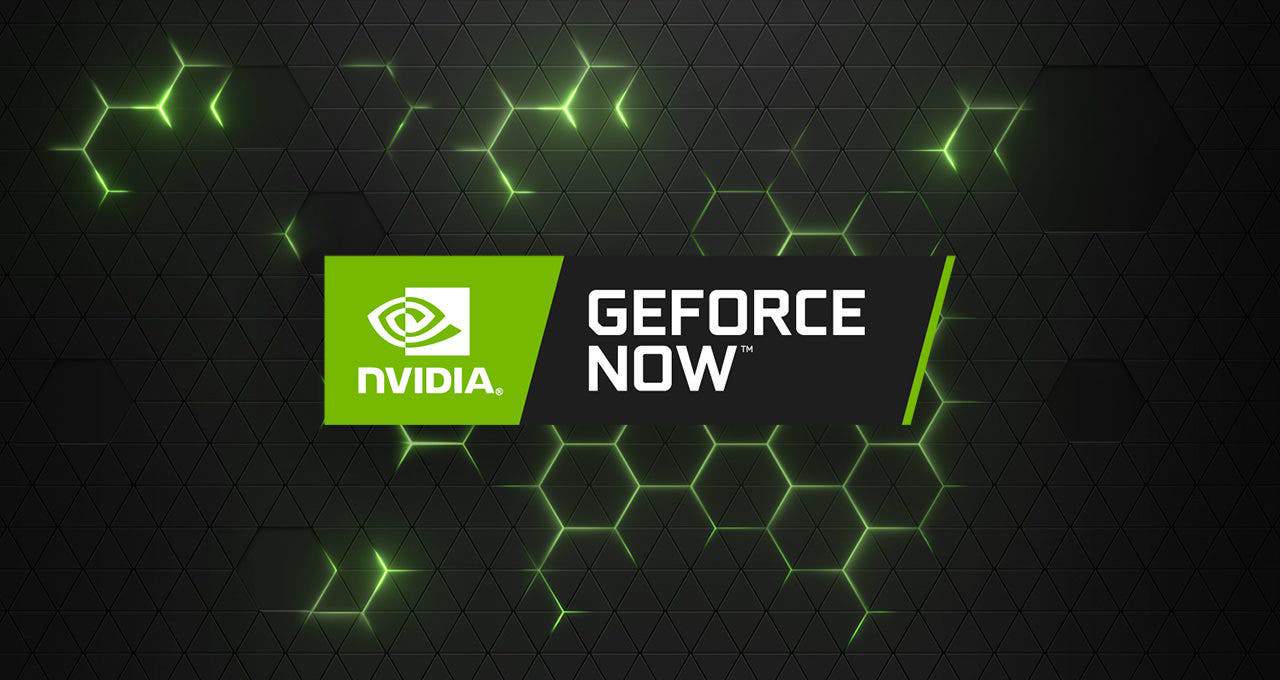
Nvidia introduced its GeForce Now service in February 2020 after several years in beta testing. GeForce Now provides access to a range of compatible games sourced from the Steam, Epic Games, GoG, or Uplay game stores. Its key advantage is that it doesn’t compel players to repurchase games they already own on these platforms. However, if you don’t own the games, you’ll need to purchase them separately, as the paid subscription doesn’t include access to a game library.
Steam has seamlessly integrated GeForce Now into its platform via Cloud Play, enabling players to access Nvidia servers directly from the Steam client with just a few clicks. Nvidia’s Achilles’ heel lies in its inability to secure agreements with certain publishers who explicitly decline to offer their games on the service. Notable examples include Activision-Blizzard, 2K, and Microsoft’s Xbox Game Studios. You can now find a comprehensive list of games available on the service.
Nvidia offers three tiers of service. The first tier is completely free and grants users access to one-hour play sessions. However, users may need to wait in a queue to access game servers. This tier is designed to allow as many players as possible to test the service at no cost.
The second tier is a paid subscription, priced at $9.99 per month or $49.99 for six months. It provides benefits such as queue skipping (within available slots), access to an RTX display (featuring ray tracing), and extends play sessions to 6 hours. Nvidia has placed a strong emphasis on ray tracing display capabilities for this service. For example, it garnered attention by running Cyberpunk 2077 in a superior version compared to console when the game was first released. Notably, by combining GeForce Now and Game Pass subscriptions, users can concurrently enjoy both game catalogs.
A third tier, known as the Ultimate subscription, offers the equivalent of an RTX 4080 in terms of graphical power. This boost enables gameplay in 4K resolution at 120 frames per second. Servers are also segregated, with an Adaptive Sync system that significantly enhances overall stability and prevents frame loss. Additionally, players can enjoy uninterrupted gaming sessions for up to 8 hours. This subscription is priced at $19.99 per month or $99.99 for six months.
The service is currently available on Windows and macOS PCs, Android smartphones and tablets, and the Nvidia Shield set-top box. Nvidia plans to expand GeForce Now to other platforms in the future. A web version is also accessible, particularly on iOS devices.
Minimum Recommended Internet Speed:
- 15 Mbps for 720p60 display
- 25 Mbps for 1080p60
- 35 Mbps for 1440p120
- 45 Mbps for 2160p120
Compatible Devices:
- Nvidia Shield
- Android
- Windows
- macOS
- iOS (via web app)
Subscription Options:
- Free
- $9.99 per month
- $49.99 for six months
- $99.99 for six months (RTX 4080)
Game Access:
- Requires login to Steam, Epic Games Store, GOG, and Ubisoft Connect accounts.
Sony PlayStation Plus Premium
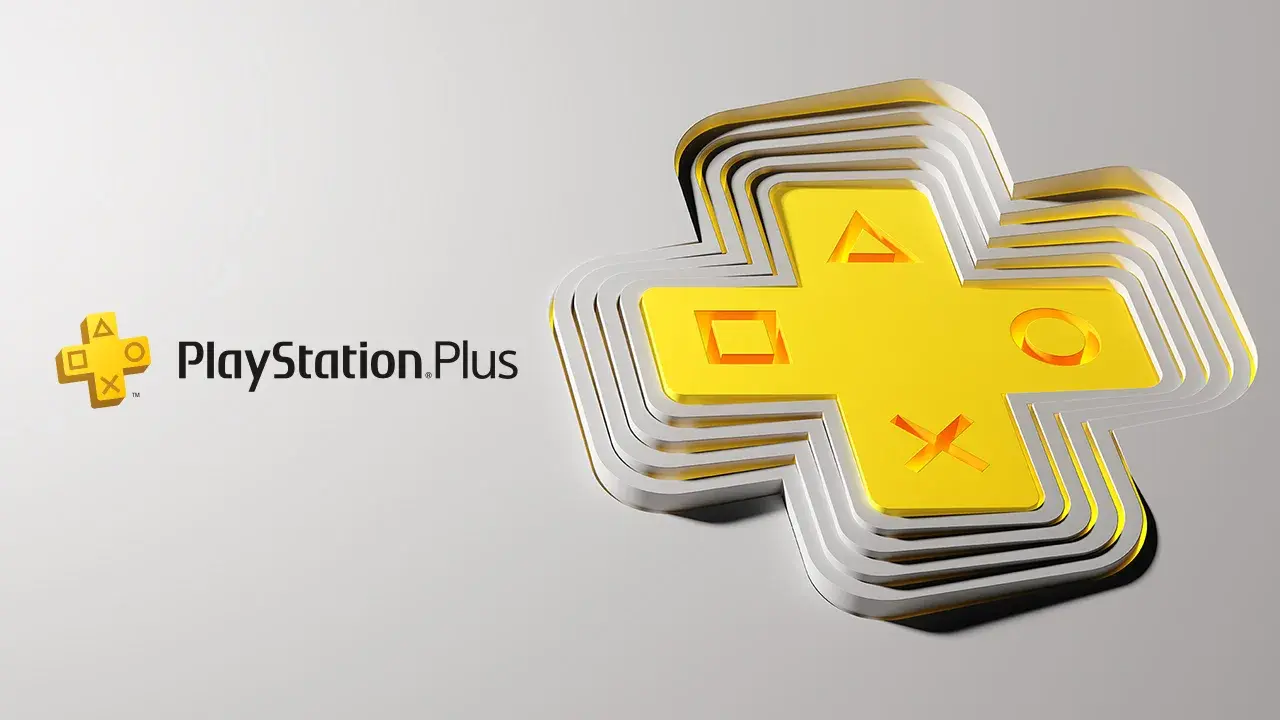
Gizchina News of the week
In June 2022, Sony revamped PlayStation Plus to rival Xbox Game Pass. This new offering is available in three tiers: PS Plus Essential, PS Plus Extra, and PS Plus Premium. The Premium tier is of particular interest as it includes the option to enjoy Sony’s cloud gaming service.
With the Premium version, you gain access to a substantial library of nearly 500 games available for streaming from Sony. This comprehensive offering even encompasses titles from previous PlayStation generations, all the way back to the first PlayStation console. The minimum recommended PC specifications call for an Intel i3 3.5 GHz processor or an AMD A10 3.8 GHz equivalent, along with at least 300 MB of available storage and 2 GB of RAM. As always, low latency is crucial, so we recommend using either an Ethernet connection or a stable Wi-Fi 6 connection.
For previous PS Now subscribers, the transition to the Premium offer comes at no extra cost. In essence, nothing changes, and the streaming gaming experience maintains a maximum image quality of 720p. You can seamlessly switch from the latest triple-A titles on the PS5 to beloved classics from the PS2 era.
For new subscribers, the pricing is as follows: $16.99 per month, $49.99 per quarter, or $119.99 per year. The service also offers a seven-day trial period to ensure that everything works smoothly in your setup.
Minimum Recommended Internet Speed: 40 Mbps
Compatible Devices: PS5, PS4, Windows PC
Subscription Options: Starting at $16.99 per month, $49.99 per quarter, or $119.99 per year
Game Access: Unlimited access to over 800 PlayStation games, including 500 titles from PlayStation 4 and PlayStation 5.
Shadow

Shadow is a cloud computing service that extends beyond just cloud gaming, encompassing a broader range of applications. It offers users access to a virtual gaming PC running Windows through a monthly subscription. This virtual computer can be accessed from various devices, including Windows and Mac PCs, Android and iOS devices. Shadow once offered its own hardware solutions, initially with the Shadow Box and later with the Shadow Ghost. However, these products are no longer available for purchase, although existing users can continue to use them despite the absence of updates.
Once Windows is set up on Shadow, it operates like a standard PC. Users are responsible for purchasing their own games. However, this also means that they can easily access their existing gaming accounts, such as Battle.net, Steam, Origin, UPlay, or Xbox Game Pass. Users have full control over the virtual computer, including the ability to install their preferred games within the constraints of available storage and update Nvidia drivers. It’s even possible to integrate a Raspberry Pi into your Shadow setup.
After facing significant challenges for a few years, Shadow has reinvented itself and now offers a basic subscription priced at $32.99 per month. This subscription provides access to a PC equipped with a GTX 1080 graphics card. For those seeking more power, the Power+ option is available at $49.98 per month. This option includes access to the potent RTX A4500 graphics card (a professional card with performance levels between an RTX 3070Ti and an RTX 3080), an AMD EPYC 7543P processor (featuring 8 cores and 16 threads per user), 28 GB of RAM, and 512 GB of storage. This configuration allows for optimal gaming experiences, including gaming in 4K resolution. Additionally, users can achieve refresh rates of up to 144 Hz, regardless of the chosen configuration.
Amazon Luna
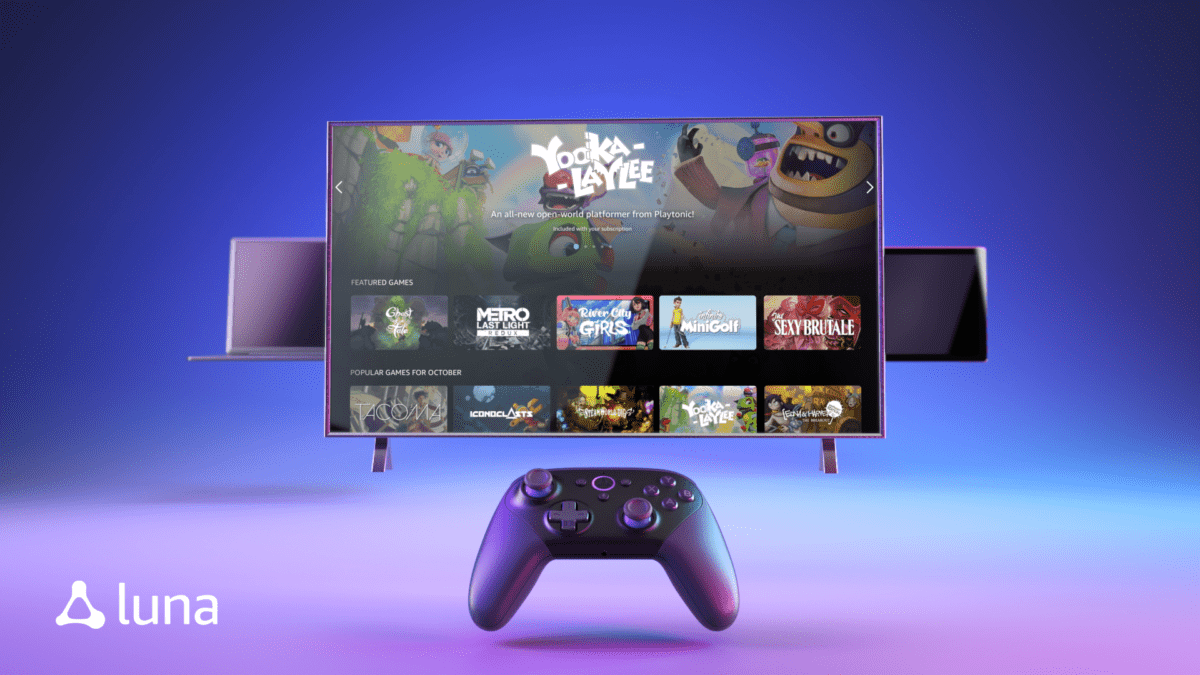
Originally known as Project Tempo, Amazon’s cloud gaming service was officially unveiled on September 24, 2020, under the name Amazon Luna.
As of now, Luna is exclusively available in the United States, priced at $9.99 per month. It has since expanded to the UK (£8.99/month), Canada ($12.99/month), and Germany (€9.99/month).
With a Luna subscription, users gain access to the Luna+ package, boasting “more than 100 games.” Beyond this, additional packages from various publishers will be required to unlock more games, and there’s the possibility of genre-specific packages in the future. Luna’s user interface is structured similarly to Amazon Prime Video, featuring distinct “channels.”
Luna boasts compatibility with a wide range of operating systems. On Android devices, users are encouraged to use a browser (Luna recommends Chrome). Much like GeForce Now, Luna also allows players to stream games they already own, although currently, this feature is limited to Ubisoft games via Ubisoft+.
As the owner of Twitch, Amazon has thoughtfully created connections between its cloud gaming service and the popular video streaming platform. If you’re watching a Twitch streamer playing a game available on Luna, you can launch the game with just one click.
Minimum Recommended Internet Speed:
- 10 Mbps for 1080p
- 35 Mbps for 4K
Compatible Devices:
- iPhone and iPad via Safari
- Android
- Computers (Windows and macOS)
- Fire TV
Multi-Device Playability:
- Simultaneous play on two devices
Subscription Options:
- $9.99 per month, with optional publisher packages
Game Access:
- A library of over a hundred games.
Electronic Arts (EA)
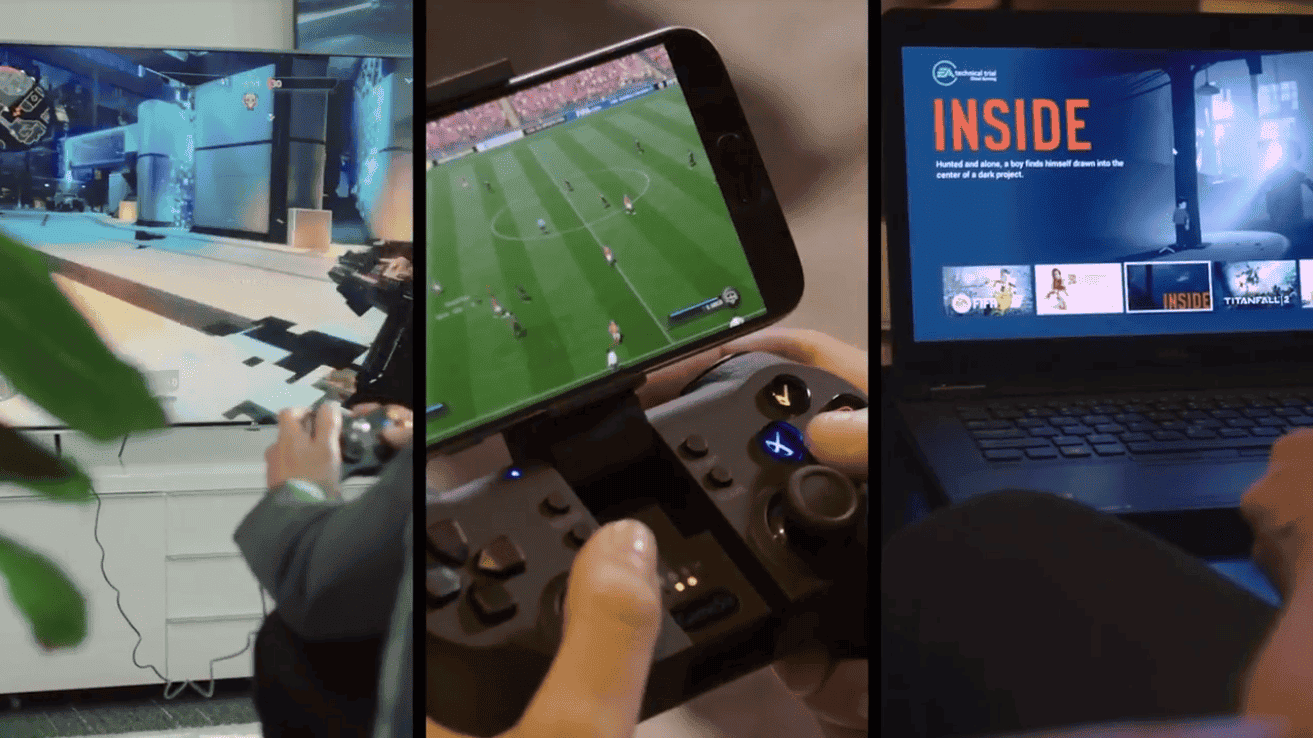
Electronic Arts, a prominent video game publisher, expressed its intentions to join the cloud gaming race. The announcement was made during E3 2018, where EA revealed that it was actively developing its own cloud gaming service. In October 2018, further insights into this service emerged when EA’s Chief Technology Officer, Ken Moss, published a Medium article. This cloud gaming initiative was named Project Atlas, yet details about its exact nature remained shrouded in mystery. Project Atlas was poised to combine elements like the Frostbite graphics engine (crafted by DICE for EA), cloud servers, and artificial intelligence. It was a promising endeavor, but many aspects, including its launch date, remained undisclosed.
As of now, no substantial updates have been disclosed regarding the project’s progress, leaving room for speculation about its status, including the possibility of abandonment.
In the interim, Xbox Game Pass Ultimate subscribers have been granted access to games from the EA Play catalog through cloud gaming.
Moreover, Electronic Arts already operates its EA Play Pro service, available on PC. This subscription service is dedicated to video games, granting subscribers access to a rich catalog of EA’s finest titles, along with contributions from other game developers. Notably, EA Play Pro also provides early access to new EA games, allowing players to enjoy them several days before their official commercial release.
Other Key Players
As you can observe, cloud gaming is reshaping the landscape of the video game industry, with major players in the tech world either offering or developing their services. However, certain brands have remained notably reticent on this front.
Steam Valve, through its Steam digital game store, has solidified its position as the foremost distributor of PC games. Nevertheless, Valve faces ever-increasing competition, particularly from the Epic Games Store, propelled by the success of Fortnite. While Valve has not shown clear intentions to launch its own cloud gaming service, it has been fostering collaboration with other services such as GeForce Now through Steam Cloud Play.
Apple Amid its pursuit of diversified revenue streams, Apple has ventured into the realm of services. Following the prosperous debut of Apple Music, which even extended to Android users, Apple shifted its focus to news with Apple News+ and video with Apple TV+. In the gaming arena, the company has, for the time being, opted for the Apple Arcade subscription service, exclusive to its ecosystem of devices.
Nintendo Nintendo seldom treads the same path as its rivals, Microsoft and Sony. Instead, the Japanese company follows its own distinctive course, a strategy that has proven successful with the commercial triumph of the Nintendo Switch. The question of whether Nintendo will delve into cloud gaming remains unanswered.

